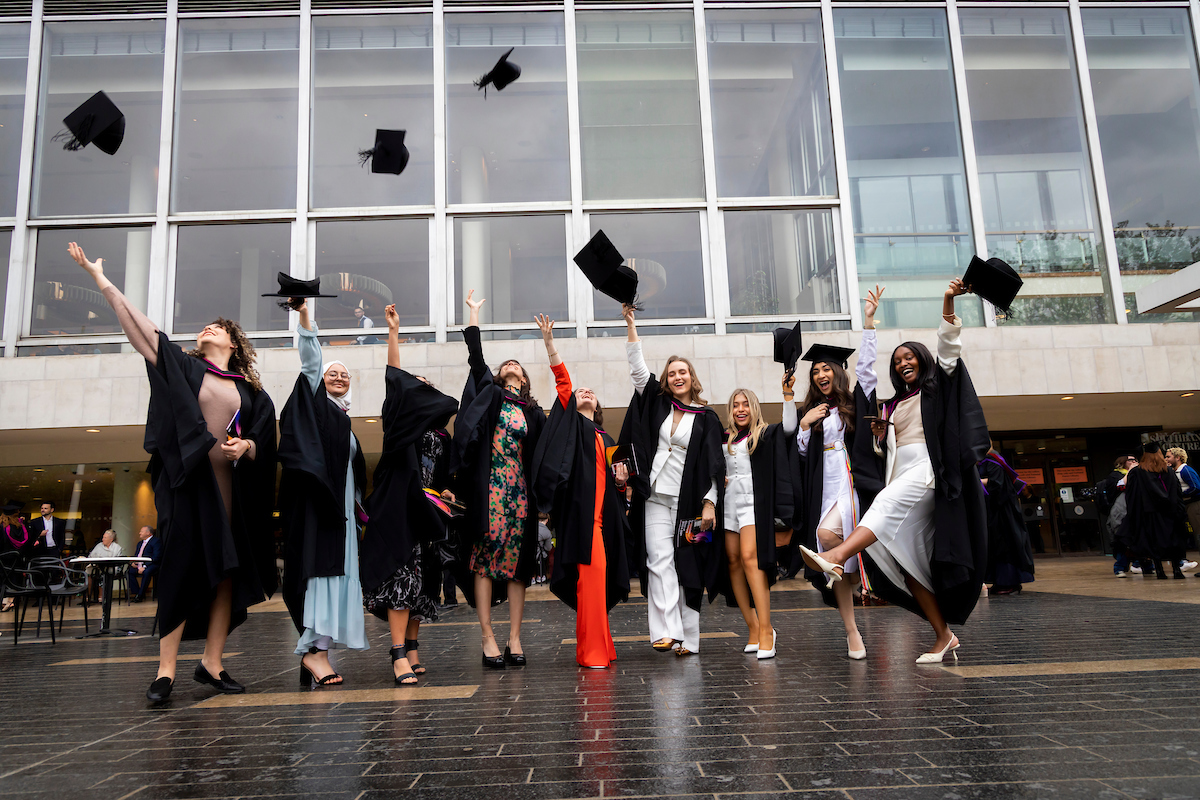Yesterday, the class of 2020 and 2021 gathered at the Royal Festival Hall to celebrate their graduation.
In our first in-person graduation since 2019, the day brought together communities from all the college at UAL. Jida Akil, who graduated in 2021 from BA Performance: Design and Practice, represented her Central Saint Martins cohort on stage. Here, we share Jida’s speech in which she reflects on the impact of the pandemic on this community of emerging creative practitioners.
"This is the time to celebrate each other because we made it here, despite constantly having to pick our battles, overcome self-doubts and obviously survive a pandemic.
Hindsight is 2020, quite literally. So, in hindsight, here's my take on the past two years which I would describe as a series of paradoxes. When I think back to five years ago, applying to art school, all I remember is the people who warned me about the cutthroat competition that leads to inevitable burnout. But I still remember my own pure excitement about attending an institution that would let me experiment with what mattered to me the most: creativity.

It felt like there was an impending collision between the competition and the creativity, unsure of when they would clash. and either make or break a budding artist. In hindsight, I'm grateful for the time we had these past two years, the time to reflect on the pre-pandemic reality that fostered quantity over quality, often to a detriment, at least in my opinion.
And here is our first paradox. Our stillness allowed us to be more engaged. Obviously, we were engaged with our personal wellbeing and our tutors’ favourite phrase 'the development of your creative practice'.
But on a larger scale, we engaged with global socio-political and economic issues simultaneously as learners and educators. In the stillness, we took it upon ourselves to bring forward the glossed-over institutionalised and systemic problems that have been part of a different kind of pandemic in modern day society, pushing individuals and institutions alike to finally integrate and re-evaluate anti-discrimination policies, which I hope are a long-term active effort in the post-pandemic future of our institutions.
This brings me to the second paradox. In our isolation, we became more collaborative than any of us had anticipated. While it was not made easy with glitchy Zoom calls, it was frustratingly beautiful how the limited access to resources and space brought new forms of collaboration.
-
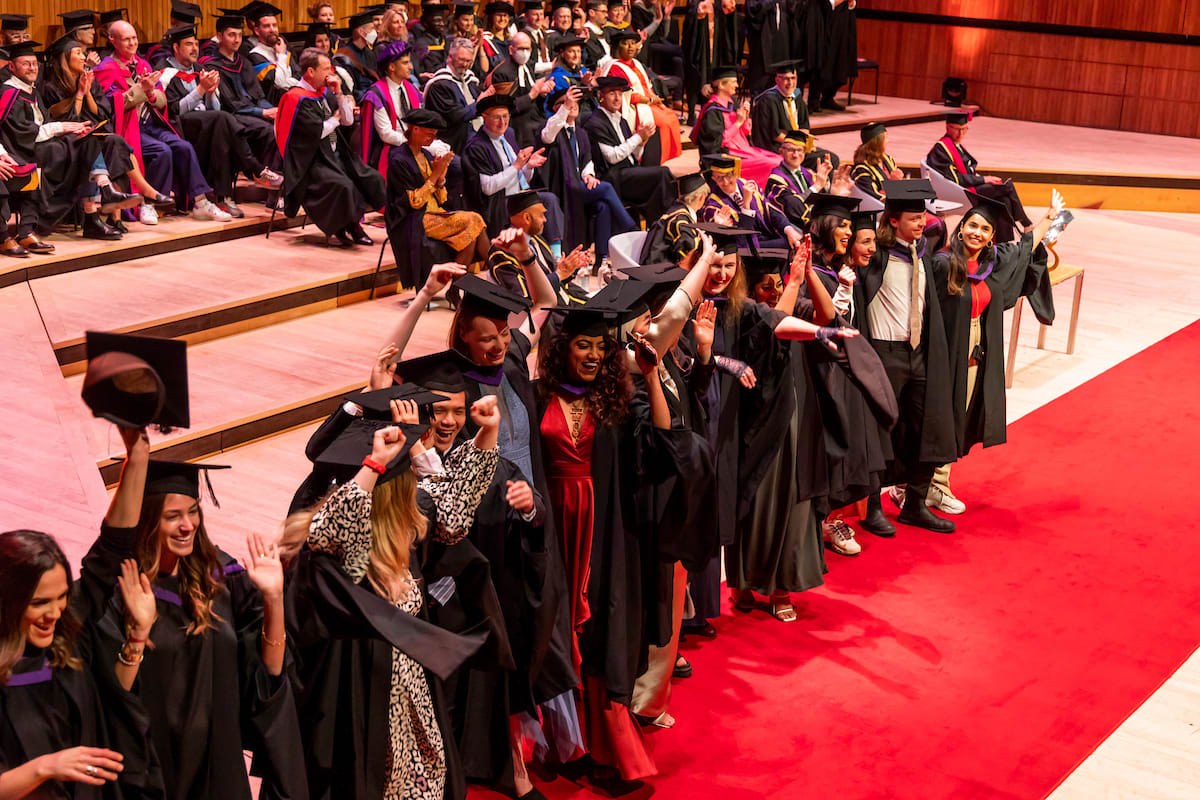
Graduation for 2020 and 2021 graduates, (Photo: David Poultney @In-Press Photography)
-
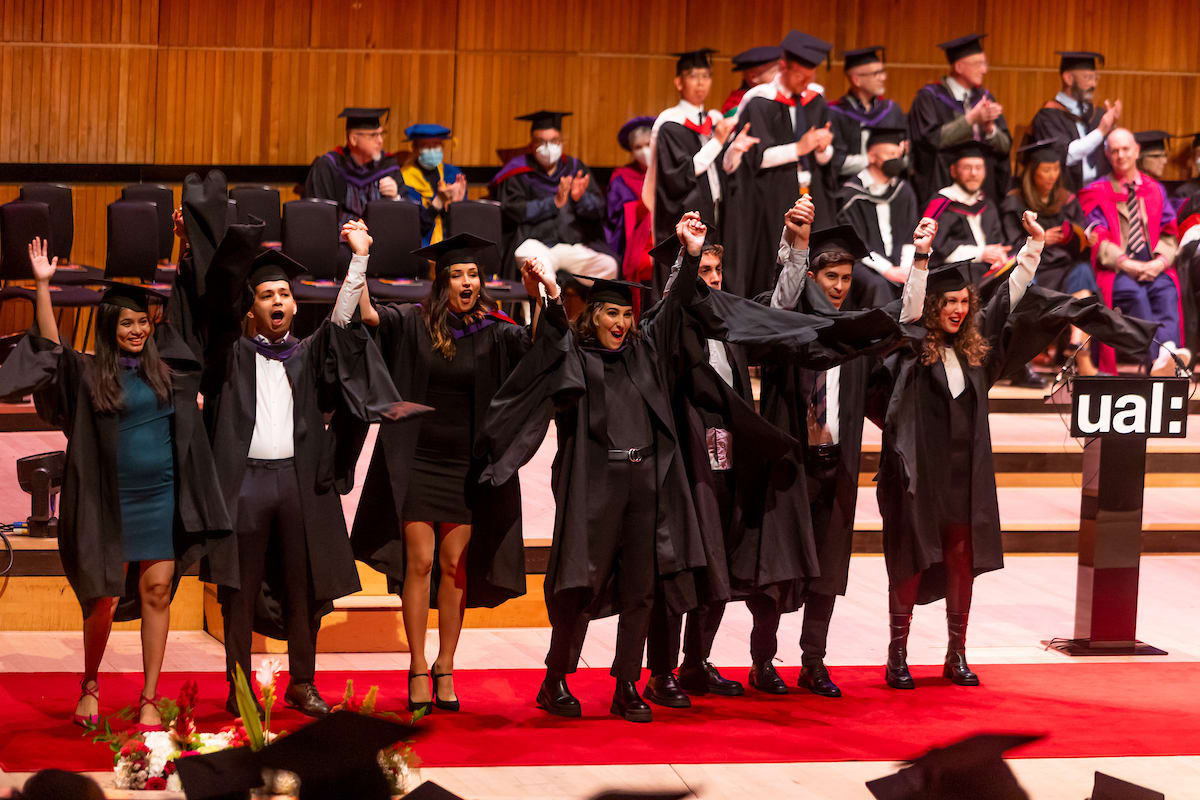
Graduation for 2020 and 2021 graduates, (Photo: David Poultney @In-Press Photography)
-
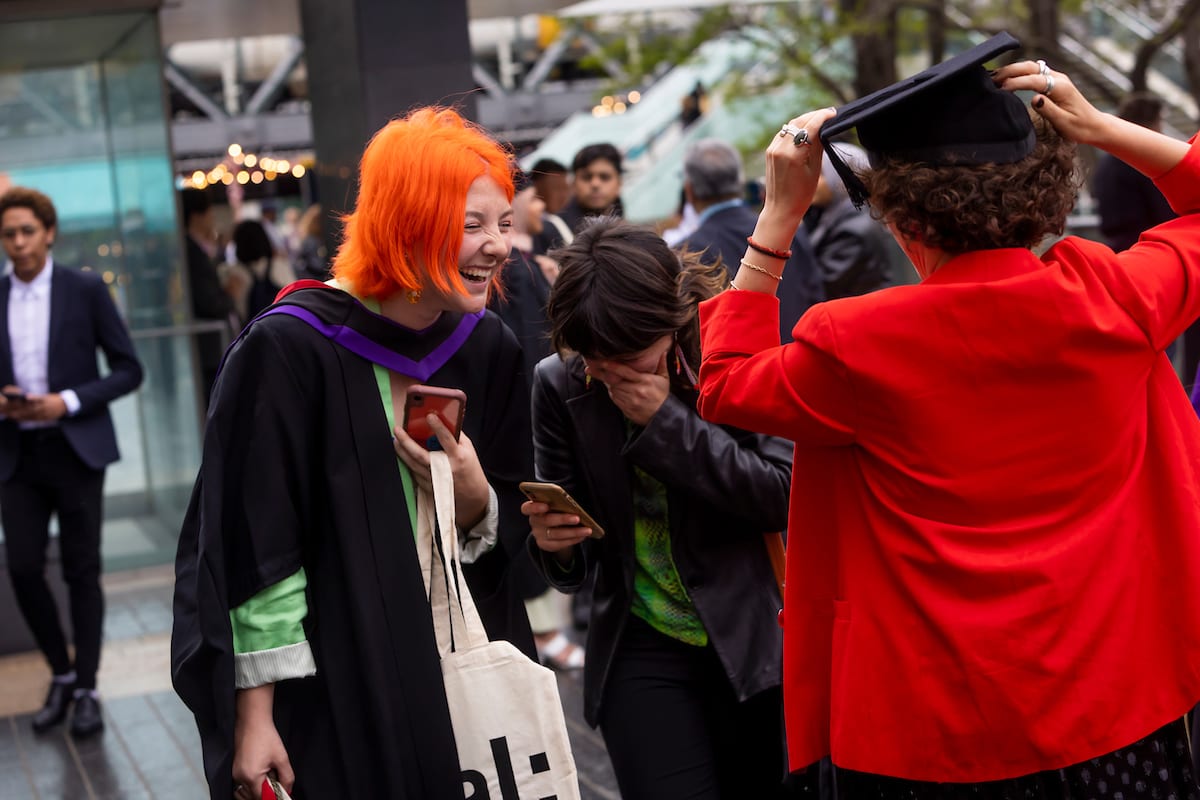
Graduation for 2020 and 2021 graduates, (Photo: David Poultney @In-Press Photography)
-
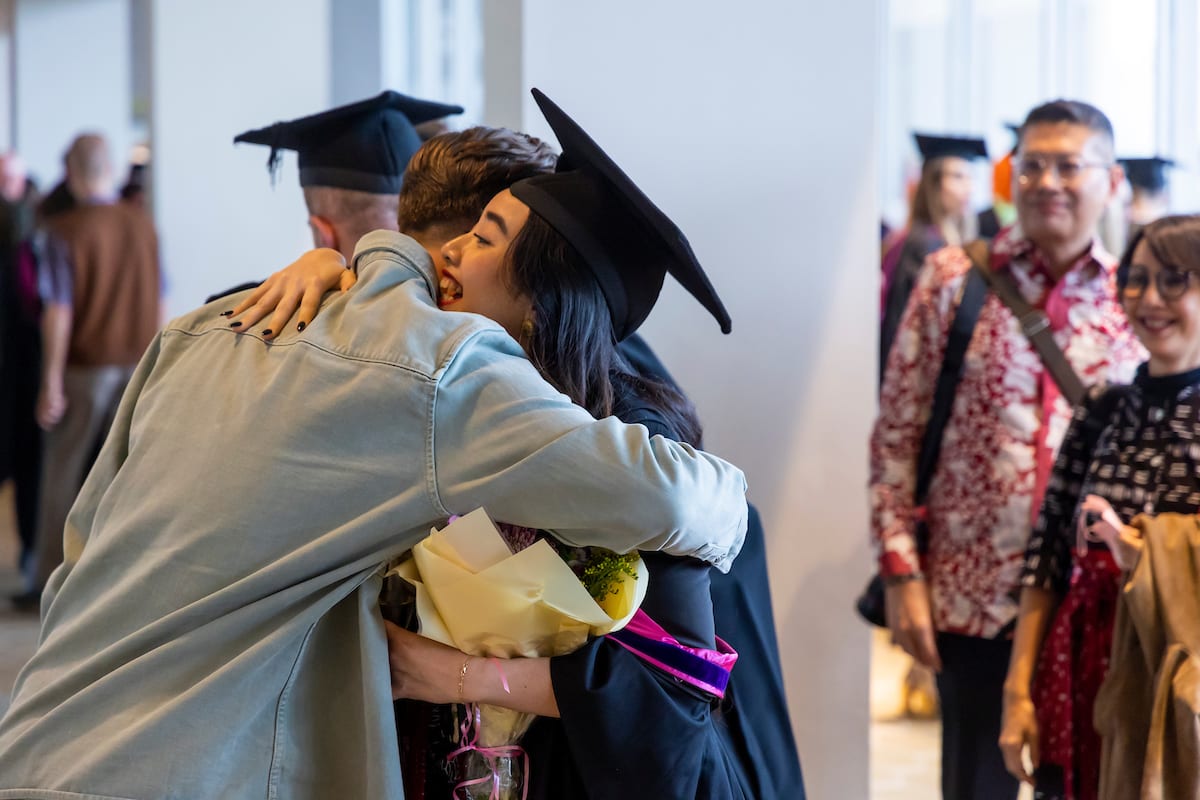
Graduation for 2020 and 2021 graduates, (Photo: David Poultney @In-Press Photography)
I remember the sheer panic of not knowing if I'd ever set foot in any of the technical workshops or the art shop ever again. And if I'd ever be able to make the dream work for my degree, but creating became collaboration with our spaces and resources, the limitations became freeing. In the rush of deadlines, I think we often forgot that creating is about the process, bringing about the joy of playing experimentation rather than just a pristine final outcome.
We were seeing a more accessible exchange between the artist and the audience, thanks to the pandemic. It's no lie that we were disappointed not to have a physical degree show, showcasing our work digitally unravelled the possibilities of a global network of artists. As an international student myself, who was stuck abroad for most of lockdown, the limitations of borders were somewhat eliminated. Breaking that physical barrier meant that the collaborative exchange between artist and audience transcended convention. We weren't just creating for tutors, our examination board or for a Eurocentric industry; we took the leap as emergent citizens of an international creative community in creating for ourselves we were creating for each other.
If I could boil it down, the pandemic was not very different to a project brief. The first thing you see is the deadlines, the restraints. All you want to do is go against the grain but then you let your ideas simmer, you take the time to experiment with the parameters until you have an outcome where you can at least say you learned something in the process.
It's about the process, the ups and downs, the many, many failures, until something clicks that you can carry with you for a lifetime. If it was up to me, I'd give us all first-class honours for surviving a pandemic. Congratulations everyone. We made it here because our creativity is our resilience.”
-
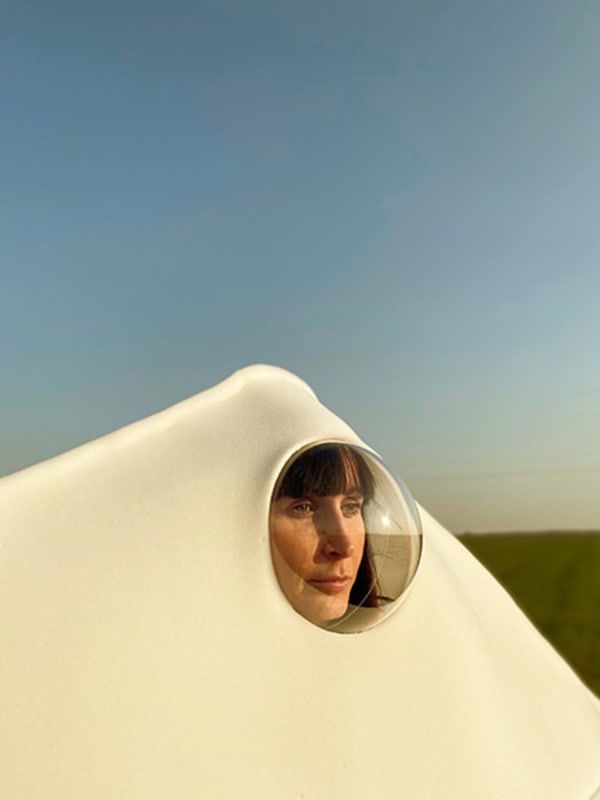
Joanna Wirazka, Grandma's Cellar
